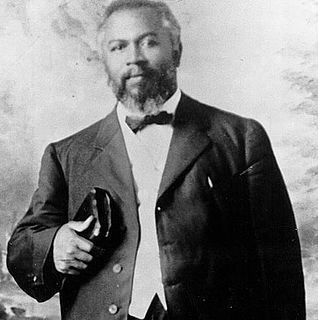A Quote by Martin Walser
People who don't pay attention to the question of justification are often rather uninteresting, in my opinion. I am most fascinated by characters who struggle with the demands of justification.
Related Quotes
I'm afraid that in the United States of America today the prevailing doctrine of justification is not justification by faith alone. It is not even justification by good works or by a combination of faith and works. The prevailing notion of justification in our culture today is justification by death. All one has to do to be received into the everlasting arms of God is to die.
Justification and sanctification are both God's work, and while they can and must be distinguished, the Bible won't let us separate them. Both are gifts of our union with Christ, and within this double-blessing, justification is the root of sanctification and sanctification is the fruit of justification.
I fear it is sometimes forgotten that God has married together justification and sanctification. They are distinct and different things, beyond question, but one is never found without the other. All justified people are sanctified, and all sanctified people are justified. ... Tell me not of your justification, unless you have also some marks of sanctification. Boast not of Christ's work for you, unless you can show us the Spirit's work in you.
A rigorous doctrine of imputation is not only limiting but ends up doing a disservice to the nature of grace and justification. It makes the transactions of the gospel basically juridical. In the Roman view, justification and sanctification are a seamless fabric. It is more than a question of God simply seeing us through a legal scrim of Christ's righteousness. Righteousness actually begins to transform us.
From the simplest lyric to the most complex novel and densest drama, literature is asking us to pay attention. Pay attention to the frog. Pay attention to the west wind. Pay attention to the boy on the raft, the lady in the tower, the old man on the train. In sum, pay attention to the world and all that dwells therein and thereby learn at last to pay attention to yourself and all that dwells therein.
When you ask why did some particular question occur to a scientist or philosopher for the first time, or why did this particular approach seem natural, then your questions concern the context of discovery. When you ask whether the argument the philosopher puts forth to answer that question is sound, or whether the evidence justifies the scientific theory proposed, then you've entered the context of justification. Considerations of history, sociology, anthropology, and psychology are relevant to the context of discovery, but not to justification.
I don't want to justify religion in terms of its benefits to us. I believe that, on balance, it does a lot of bad things, too - a tremendous amount. But I don't think that the final justification of religion is the good it does for people. I think the final justification is that it's true, and truth takes priority over consequences. Religion helps us deal with what is most important to the human spirit: values, meaning, purpose, and quality.
It's a strange thing to have a successful television show because if it's too interesting... people don't really pay attention when they watch TV. It has to be good, but not so interesting that you really have to pay attention because people multitask. So, if a show demands your entire attention, it has a tough time making it.





































